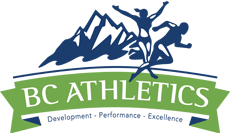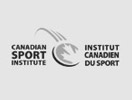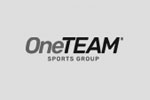Safe Sport
Safe Sport
BC Athletics Safe Sport Statement
BC Athletics believes in promoting a safe and inclusive environment for athletes, coaches, officials, volunteers and spectators participating in the sport of Athletics (Track & Field, Road Running, Cross Country Running, Race Walking, Mouinta and Trail Running). BC Athletics accepts all language in the Universal Code of Conduct to Prevent and Address Maltreatment in Sport (UCCMS).
BC Athletics Safe Sport Policies
CODE OF ETHICS & CONDUCT
- BC Athletics Code of Ethics and Conduct Policy (August 2024)
- Screening and Safe Sport Education Policy (August 2024)
COMPLAINTS/ DISCPLINE / APPEAL
- Complaints, Dispute Resolution and Discipline Policy (August 2024)
- Appeal Policy (August 2024)
- Complaint Form (August 2024)
Athletics Canada Safe Sport Policies
viaSport Resources
Safe Sport Training
Online Webinars
- Safe Sport Training (from Coaching Association of Canada - Free)
- The Safe Sport Training module developed by the Coaching Association of Canada (CAC) will help anyone involved in sport identify and prevent situations of maltreatment.
- Required course for all BC Athletics members who hold an Associate, Coach or Officials membership.
- Safe Sport Education for Youth
- This new Safe Sport Education Program for Youth aged 13-19 provides a comprehensive approach to fostering a safe and respectful sporting environment. This program covers essential topics such as recognizing and reporting abuse, setting boundaries, and promoting healthy relationships within sports communities. Through interactive modules and engaging discussions, participants will gain the knowledge and skills necessary to navigate potential risks and protect themselves and others. It’s important to note that some of the information covered may evoke discomfort, and participants are encouraged to seek out support if needed. For those under the age of 13 we strongly suggest you take this training with the support of a parent or guardian. Together, we strive to create a culture of safety and empowerment in sports for all young athletes.
- NCCP Make Ethical Decisions Online (from viaSport $70.00)
- Also required for coaches of any context to be an NCCP trained coach
- Respect in Sport for Activity Leaders: Strategies to respond to bullying, abuse, harassment and discrimination (BAHD) (from Respect Group Inc.)
- Commit to Kids – Understanding boundaries, sexual misconduct, and reporting inappropriate behaviour (from Commit to Kids - $12.00)
- NCCP Emergency Action Plan (from Coaching Association of Canada - Free)
- Relative Energy Deficiency in Sport (RED-S): How it Can Impact All Athletes and All Sports (from CSI Pacific - Free)
- NCCP Making Head Way – Concussion Training (from Coach Assoication of Canada, Free)
- Concussion in Sports (from School Sport - Free)
Concussion Management
Concussion Protocols, Information and Resources







